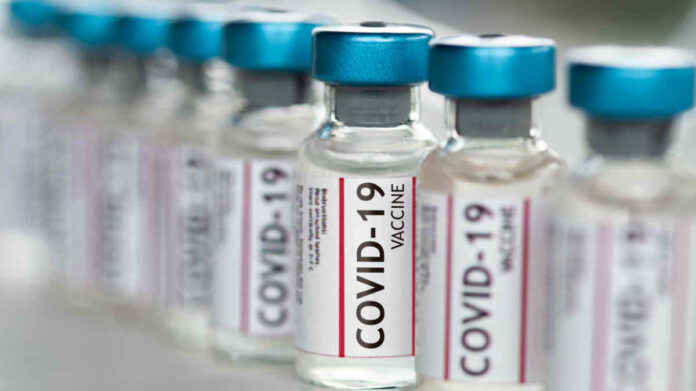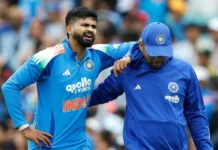Pune, February 17th, 2022: Gavi, the Zero-Dose Community of Practice, which is a co-led association, along with UNICEF and WHO organized and participated in a seminar titled ‘Unvaccinated (zero-dose) children in India, 1992–2016: learning from progress, and those left behind’ on 2nd February 2022. The seminar was based on the recently published, Lancet Global Health article ‘Progress in reaching unvaccinated (zero-dose) children in India, 1992–2016’ which was co-authored by Prof. Sunil Rajpal, FLAME University, Dr. Mira Johri, Université de Montréal, QC, Canada, and Dr. SV Subramanian, Harvard University, Cambridge, MA, USA.

Important Announcement – EasyShiksha has now started Online Internship Program “Ab India Sikhega Ghar Se”

The seminar discussed the report findings along with the research, which yielded insights relevant for the Immunization Agenda 2030, a global strategy to leave no one behind. A new global strategy was co-developed by WHO, countries, and partners and endorsed by the World Health Assembly in May, last year. It aims to reach zero-dose children and bring them sustainably into the routine immunization system.
As reaching zero-dose children (infants who receive no routine vaccinations) is a global strategic priority, the team of researchers used four rounds of nationally representative survey data and studied the situation of zero-dose children in India over a 24-year timeframe from 1992 to 2016.
Top Courses in Software Engineering
Speaking on the research, a researcher and panelist, Dr. Mira Johri, University de Montreal, opined, “As a society, our real job should be to give the best chance to all members and sustainably attain the relevant goals, with an emphasis on the marginalized and historically excluded. Can we cross-program data across different programs and services perhaps as ways of identifying communities that are at higher risk? Can we also cross-program interventions from time to time, acknowledging that it is difficult to deliver more effective services? I wanted to point out that, rather than say what hasn’t been done, there can be a lot learned from what the Polio Program has accomplished, which includes developing excellent outreach and trust with communities, including diversifying the health workforce.”
On different interventions put in place to solve the zero-dose children problem, Prof. Sunil Rajpal, FLAME University, said, “The major dramatic fall and improvement which we have seen in the percentage of zero-dose children is between NHFS3 and NHFS4, i.e., between 2006 and 2016 of about 13.3 percentage points. Broadly at the policy level, I would say the rollout of NRHM (National Rural Health Mission) has played a big role in that. The architectural reforms under NRHM actually penetrated the bottlenecks of availability and accessibility of the vaccine at the grass-root level. Also, immunization is closely linked to the mother’s education and the institutional deliveries as found in the analysis. So there has been a tremendous increase in institutional childbirth as well between 2006 and 2016. Most of the studies have established that this is attributable to the NRHM. So, by bringing the mother to an institution or a facility, the likelihood is more that she will get the vaccines.”
Empower your team. Lead the industry
Get a subscription to a library of online courses and digital learning tools for your organization with EasyShiksha
Request NowQ. Are EasyShiksha's internships truly free?
Yes, all internships offered by EasyShiksha are completely free of charge.
Q. How can I apply for an internship with EasyShiksha?
You can apply by visiting our website, browsing available internships, and following the application instructions provided.
Q. What types of internships are available through EasyShiksha?
EasyShiksha offers a wide range of internships across technology, business, marketing, healthcare, and more. Opportunities are continuously updated.
Q. Will I receive a certificate upon completing an internship?
Yes, upon successful completion, you will receive a certificate recognizing your participation and achievements.
Q. Are EasyShiksha's internship certificates recognized by universities and employers?
Yes, the certificates are recognized by universities, colleges, and employers worldwide.
Q. Is the download of certificates free or paid?
Access to internships and courses is free, but there is a small fee to download certificates, covering administrative costs.
Q. When can I start the course?
You can choose any course and start immediately without delay.
Q. What are the course and session timings?
These are fully online courses. You can learn at any time and pace. We recommend following a routine, but it depends on your schedule.
Q. What will happen when my course is over?
After completion, you will have lifetime access to the course for future reference.
Q. Can I download the notes and study material?
Yes, you can access and download course materials and have lifetime access for future reference.
Q. What software/tools would be needed for the course?
All necessary software/tools will be shared during the training as needed.
Q. I’m unable to make a payment. What should I do?
Try using a different card or account. If the problem persists, email us at info@easyshiksha.com.
Q. Do I get the certificate in hard copy?
No, only a soft copy is provided, which can be downloaded and printed if required.
Q. The payment got deducted but shows “failed”. What to do?
Technical errors may cause this. The deducted amount will be returned to your account in 7-10 working days.
Q. Payment was successful but dashboard shows ‘Buy Now’?
Sometimes payment reflection is delayed. If it takes longer than 30 minutes, email info@easyshiksha.com with the payment screenshot.
Q. What is the refund policy?
If you face technical issues, you can request a refund. No refunds are issued once the certificate has been generated.
Q. Can I enroll in a single course?
Yes, select the course of interest, fill in the details, make payment, and start learning. You will also earn a certificate.
Q. My questions are not listed above. I need further help.
Contact us at info@easyshiksha.com for further assistance.
Panelists at the seminar consisted of Dr. Mira Johri, Université de Montréal; Prof. Sunil Rajpal, FLAME University; Ranjana Kumar from Gavi; Naveen Thacker, Director, Deep Children Hospital, President IPA; and Homero Hernandez, Gavi Senior Country Manager India.
About FLAME University:
FLAME University is the pioneer of liberal education in India, delivering the country’s premier interdisciplinary education experience. It is driven to being one of India’s most respected and reputed centres of learning – the premier destination of choice for higher education in the nation for learners and teachers, to push the design and nature of studies and to create a societal up-gradation phenomenon, particularly in the fields of liberal education and leadership. FLAME has been set up with an idealistic vision and a social commitment to contribute to society nobly. With more than 120 quality full-time faculty members, the university offers an unparalleled educational experience. The student-teacher ratio is 11:1, unmatched at the higher education level in India. Spread on 60 acres of green expanse with aesthetically designed infrastructure, and the campus currently consists of five schools: FLAME School of Liberal Education, FLAME School of Business, FLAME School of Communication, FLAME School of Computing and Data Sciences and FLAME School of Design, Art & Performance. FLAME University has been established as a state private university vide the FLAME University Act 2014 (Maharashtra Act No. II of 2015) of the Government of Maharashtra. It is recognized by the University Grants Commission (UGC) under Section 2(f), and degrees awarded by the University are recognized under Section 22 of the UGC Act, 1956
~Prof. Sunil Rajpal, FLAME University, was the panelist at the conference organized by Gavi, WHO, and UNICEF
ALSO READ: pearson-and-apollo-medskills-join-hands-to-bridge-the-healthcare-skill
Get Course: Java-Tutorial-for-Beginners-Course







































































